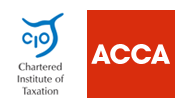The Government’s Job Retention Scheme, probably better known as the Furlough Scheme, has proved to be an important lifeline for businesses and staff during the pandemic.
It has meant employees have been able to continue drawing wages while the firms they work for faced shutting down or scaling back business operations for unknown periods of time – going some way to preventing wide scale redundancies.
Things have been really tough and unfortunately businesses and jobs have been lost, but the Furlough Scheme has by and large achieved its goal and it was good news when the Chancellor announced an extension to the scheme past its original 12-month lifespan.
You will know your support from your accountant has been key during this time.
The scheme was extended in March until the end of September – but the criteria is about to change and we thought it worth reminding you about what those changes will mean.
The level of grant and Government contributions remain unaltered until June 30 but from July 1 the level of grant will be reduced and employers continuing with the scheme will need to top-up the wages so furloughed employees will continue to receive 80% of their salary.
Between July and the end of the scheme in September, furloughed staff will continue to be paid 80% of their wages but there will be a sliding scale of contributions by the employer and the Government. It works like this:
- Until June 30th – The Government contributes 80% of the employee’s wage up to £2,500 per month with no wages contribution from the employer.
- From July 1 – The Government contribution reduces to 70% up to £2,187.50 per month with the employer funding 10% up to £312.50 a month – making up the 80% total.
- In August and September – The Government contribution falls further to 60% up to a total of £1,875 a month while the employer will need to contribute 20% up to a total of £625.
The figures relate to staff who are furloughed 100% of the time and employers can still choose to top-up staff wages above the 80% if they so wish but at their own expense.
Staff can also be part-funded so if they used to work full time they could now be working and paid for two days a week while being furloughed for three.
Employers have been required to pay National Insurance and pension contributions on furloughed pay since August and this will obviously continue until the planned end of the scheme at the end of September.
If you need more advice on the furlough scheme or a business review then please do contact the KEW Accountants team.




